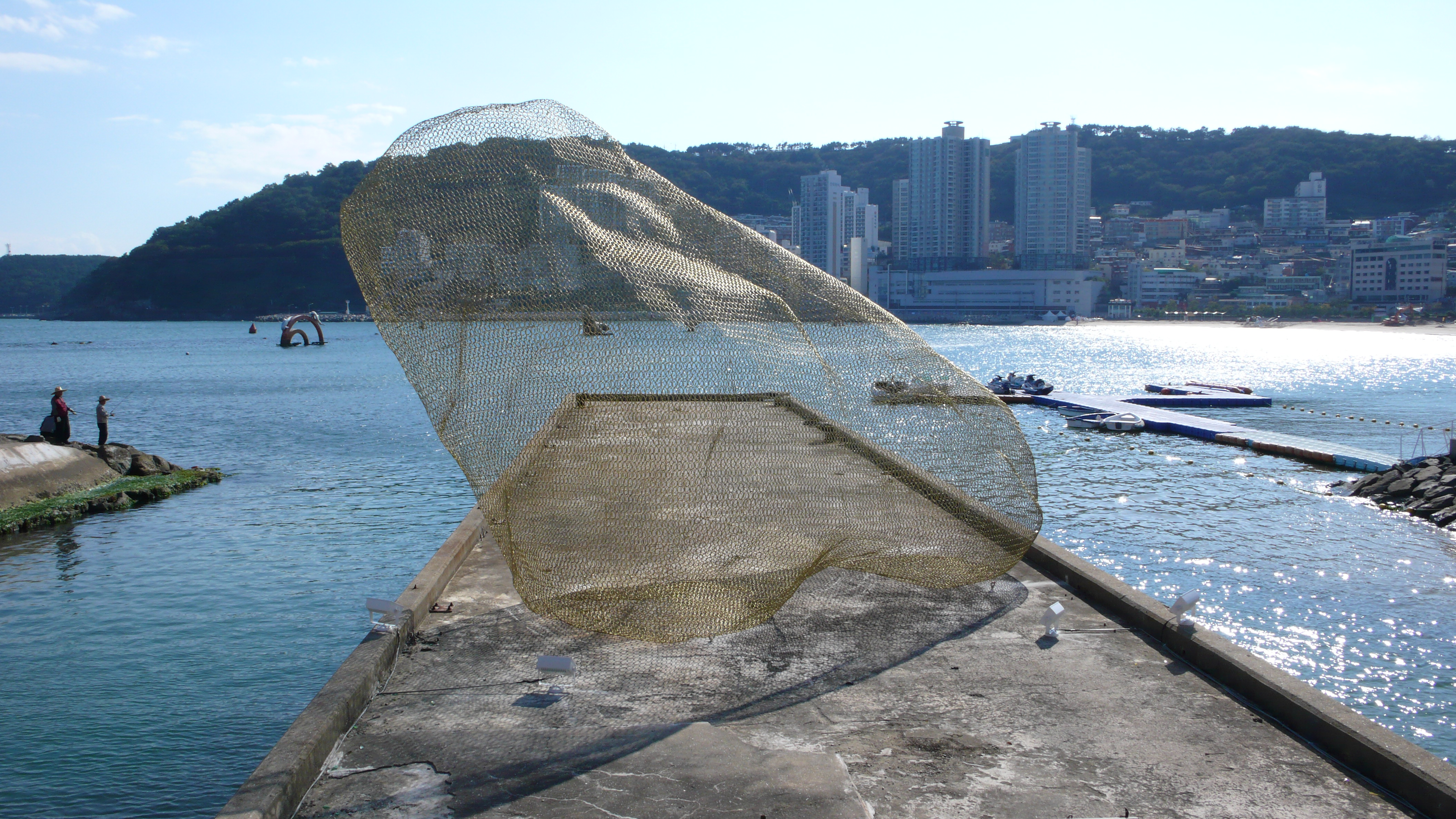|

Drift-lost dialogue
John Donne wrote in his poem For Whom The Bell Tolls?: 'No man is an island, Entire of itself. Each is a piece of the continent, A part of the main'. This means that humans are a social animal that stresses 'we' over 'I'. As they came to recognize a language, humans began to make efforts to get tangible and intangible power to adjust to the social structure and environment through dialogue, unknowingly competing and co-existing with one another.
A small rocky islet called 'Songdo' which got its name from a dense pine tree forest lost its pine trees under the Japanese colonial rule, and its name changed to 'Turtle Island'. Songdo's change into Turtle Island took place due to changes of history shaped by men, rather than by the cycle of nature. That is, Songdo's landscape and name changed due to a test of strength between nations, which are essentially the groups of humans. The landscape and name of Turtle Island represents the history of this nation and the history of people living in it.
While people as an organism and an individual clash with a nation, the nation confronts another nation, as if it is an inorganic material or a robust, unbreakable rock, rather than a group of organisms. In the process, however, the life of individuals in it are damaged and the nation as a group is broken as well. This work embodies the relationship between society and humans and between nations, by expressing Turtle Island with the shape of an egg (which symbolizes individuals or organisms) and a rock (society, inorganic materials), thereby paradoxically portraying the history of the island. Also, placed on the old dock which is out of use facing Turtle Island, this work is reminescent of the story of Turtle Island which lost its landscape and name.
|